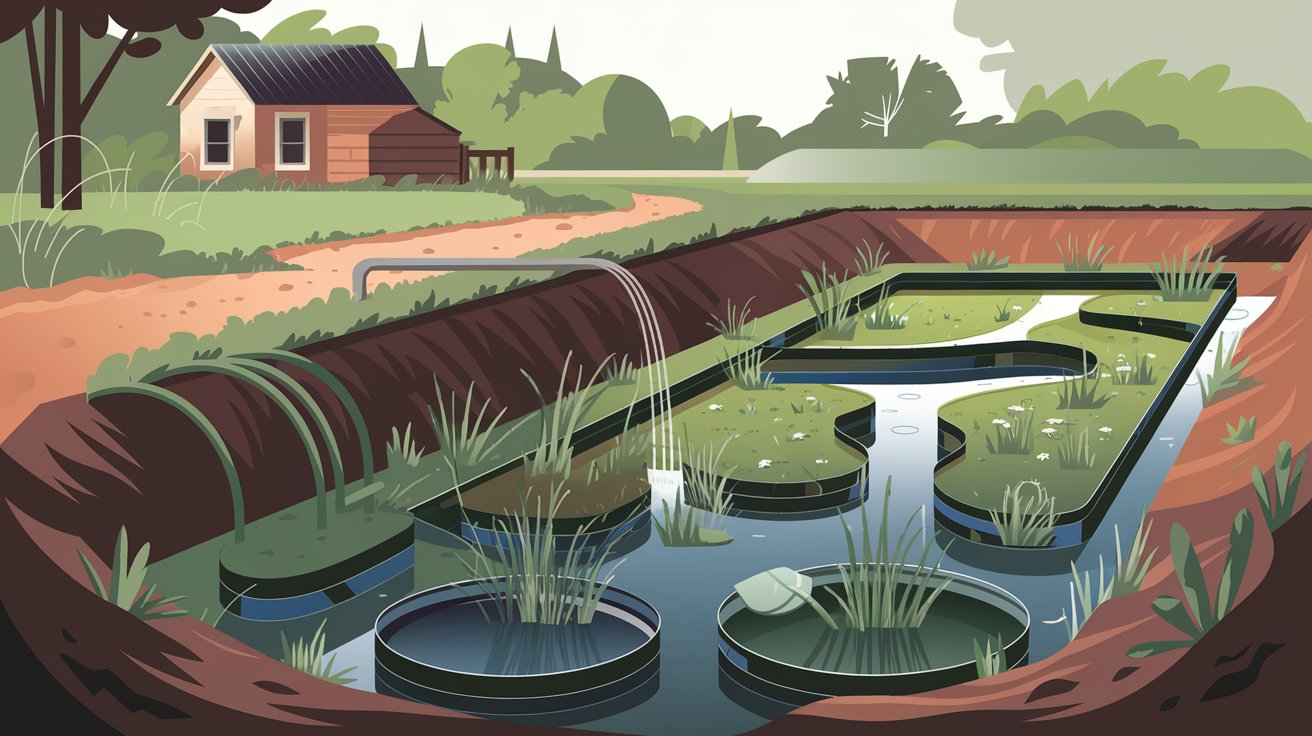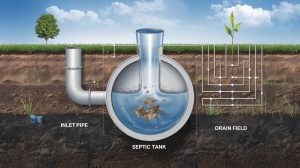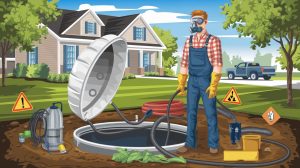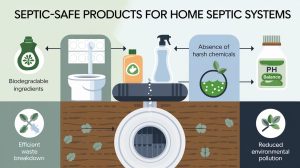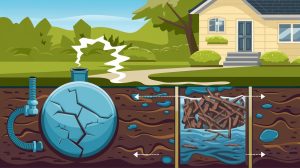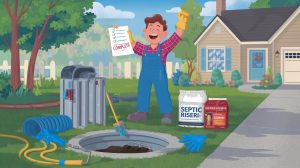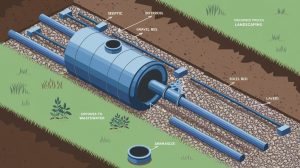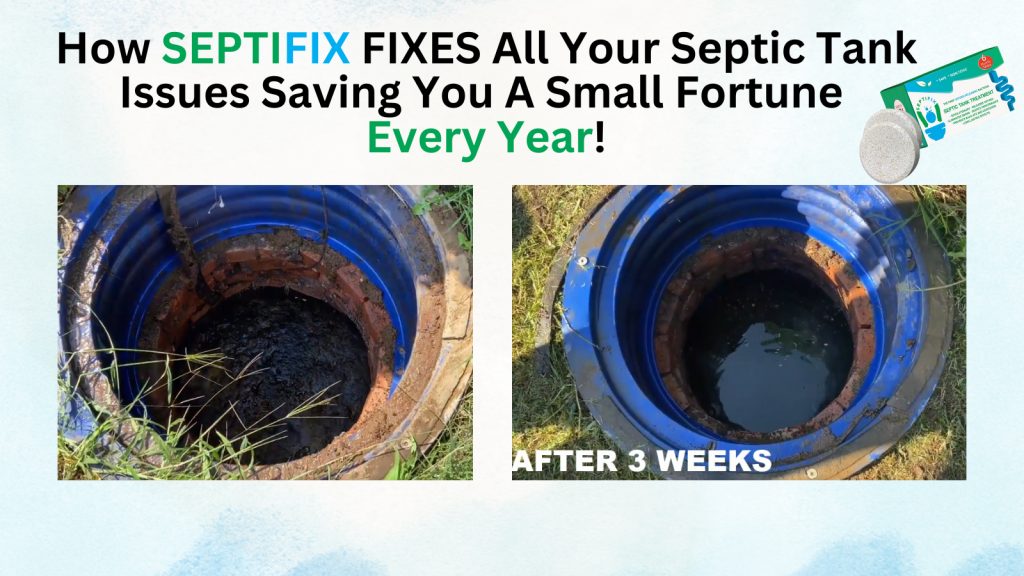Green septic systems are revolutionizing how homeowners manage wastewater. As environmental awareness grows, more people are seeking sustainable alternatives to traditional septic systems. Green systems not only treat household waste efficiently but also reduce groundwater pollution and protect local ecosystems. If you’re planning a new build or upgrading your current system, understanding the eco-friendly options available can help you make an informed, responsible choice.
Table of Contents
- What Is a Green Septic System?
- Why Go Green? Benefits of Eco-Friendly Septic Systems
- Common Types of Green Septic Systems
- Key Features of a Green Septic System
- Local and Regional Synonyms to Improve Searchability
- Installation Tips and What to Consider
- Maintenance and Professional Support
- Contact Info and Resources
- Septifix
What Is a Green Septic System?
A green septic system is an environmentally friendly alternative to conventional wastewater treatment systems. These systems are designed to:
- Use natural processes for waste breakdown
- Minimize pollution of groundwater and soil
- Require less energy and fewer chemicals
- Promote water reuse or responsible discharge
They often go beyond the basic septic tank and drainfield, incorporating technologies or designs that reduce environmental impact.
Why Go Green? Benefits of Eco-Friendly Septic Systems
Environmental Benefits
- Protects Water Sources: Reduces nitrogen, phosphorus, and bacterial runoff that can contaminate drinking water supplies.
- Supports Local Ecosystems: Cleaner effluent protects lakes, rivers, and wildlife habitats.
- Promotes Sustainability: Many green systems recycle water, reduce carbon footprints, and require fewer synthetic inputs.
Homeowner Benefits
- Cost Savings Over Time: Some systems reduce the frequency of pumping and lower energy bills.
- Property Value Boost: Eco-conscious home features can increase resale value.
- Low-Maintenance Options: Many designs operate passively using gravity or natural filtration.
Real-world insight: In rural Maine, a homeowner installed a constructed wetland septic system and saw a 40% drop in annual wastewater maintenance costs while improving soil conditions on their property.
Common Types of Green Septic Systems
1. Constructed Wetlands
Mimics natural wetlands by routing effluent through plants and gravel. Microbes and vegetation clean the water before it reaches the drainfield or is discharged.
Best For: Rural or semi-rural properties with enough land.
Considerations: Requires proper design to avoid mosquito breeding.
2. Aerobic Treatment Units (ATUs)
These systems introduce air to promote aerobic bacteria, which break down waste faster and more completely than anaerobic methods.
Best For: Small lots, high water tables, or when advanced treatment is needed.
Considerations: Needs electricity and regular maintenance.
3. Sand Filter Systems
Wastewater flows through a bed of sand that filters and treats the effluent before discharge.
Best For: Areas with poor soil percolation or where groundwater is near the surface.
Considerations: Sand media needs eventual replacement.
4. Drip Distribution Systems
Effluent is dispersed in small doses through tubing buried under the soil, promoting even absorption and nutrient uptake by plants.
Best For: Properties with shallow soils or uneven terrain.
Considerations: Requires a pump and filter maintenance.
5. Composting Toilets with Greywater Systems
Composting toilets reduce blackwater production, while greywater from sinks and showers is treated separately using simple filtration or constructed wetlands.
Best For: Off-grid homes, cabins, or environmentally focused households.
Considerations: User education and regular composting required.
Key Features of a Green Septic System
Low Energy Use
Many systems rely on gravity or plant processes instead of electric pumps or chemical additives.
Enhanced Waste Breakdown
Aerobic systems and wetlands provide more thorough treatment, removing more nutrients and pathogens.
Water Reuse
Some systems are designed for irrigation reuse, cutting down on overall water consumption.
Natural Aesthetics
Landscaped systems like constructed wetlands can blend seamlessly with your yard, doubling as garden features.
Local and Regional Synonyms to Improve Searchability
To improve visibility in search results across regions, you can substitute or embed these terms as appropriate:
- Sewage treatment systems (common in Northeast states)
- On-site wastewater systems (used in Pacific Northwest)
- Wastewater dispersal systems (Midwest usage)
- Rural home sewage systems (Southern and rural communities)
Installation Tips and What to Consider
Site Conditions Matter
Soil type, slope, and water table depth will determine which system works best. A percolation test is often required.
Permits and Regulations
Always check with your local health or environmental department. Green systems often need specific approvals.
Hire Qualified Professionals
Design and installation require expertise. Choose a certified installer with experience in alternative septic technologies.
Tip: Look for providers who specialize in eco-friendly or alternative septic systems. They’ll understand the nuances of permitting, design, and local environmental goals.
Maintenance and Professional Support
Even though green systems are built to be more sustainable, they still require routine maintenance to ensure long-term function:
- Annual inspections
- Sludge and scum monitoring
- Pump replacements (for ATUs or drip systems)
- Plant maintenance (for wetland systems)
Warning: DIY maintenance beyond basic tasks can cause damage or violate local codes. Always contact a professional for repairs or system failures.
Contact Info and Resources
If you’re interested in installing or upgrading to a green septic system, check out these helpful resources:
- EPA’s SepticSmart Program – Offers tips and best practices for homeowners
- National Onsite Wastewater Recycling Association – Find certified professionals and training info
- Your state environmental or health department website – For permits, regulations, and approved system types
- Orenco Systems – Manufacturer of advanced wastewater systems and green septic technologies
- Local extension offices – Many universities offer soil testing and green system guidance
Conclusion
Green septic systems offer a smart, sustainable solution for managing household wastewater. From constructed wetlands to aerobic treatment units, these systems protect the environment, conserve resources, and in many cases, reduce long-term costs. Whether you’re building a new home or upgrading an outdated system, considering an eco-friendly septic solution is a step toward cleaner water, healthier soil, and a greener future.
Ready to go green? Contact a licensed septic system expert today to find the best sustainable option for your property.
What is a Septic Tank?
DIY Septic Maintenance: A Beginner’s Guide
DIY Septic Pumping: Can You Do It?
What Are Septic-Safe Products?
What Are Septic Tank Treatments?
Common Causes of Septic Odors: What You Need to Know
Overview of Septic Tank Costs
What Is a Septic Drain Field?
Septifix

